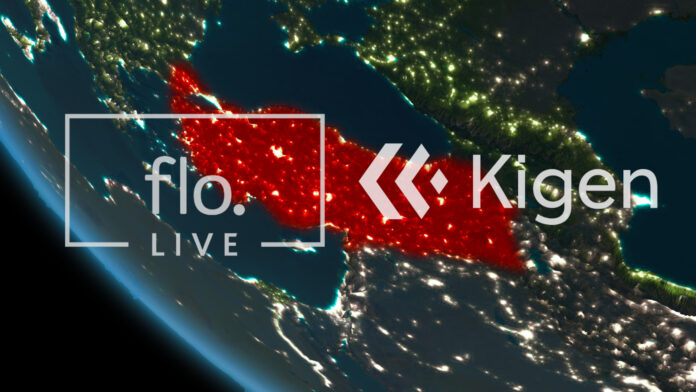IoT MVNO startup FloLIVE claims to have solved the challenge of IoT roaming in Turkey, one of several major markets to impose restrictions on permanent roaming. The London-based firm has worked with SIM specialist Kigen and local telco provider Protahub to enable globally-provisioned eSIMs to connect to local carrier networks in Turkey. Restrictions on permanent roaming, made either in regulation or via local operators, stop IoT devices from being provisioned via regular MNO/MVNO roaming deals.
These regional rules have presented a headache for the IoT community, producing devices in one market to be sold in a second market, and potentially distributed and deployed into a third market. As such, connectivity is typically embedded into IoT modules in production, and provisioned in global markets, where they automatically connect to a local operator on a ‘permanent roaming’ arrangement. Most static IoT devices remain on a single network on a multi-year basis, stretching in theory to more than 10 years.
Operators and regulators in these markets have essentially taken exception to the idea that massive volumes of IoT devices will enter their markets and consume their telecoms resources for long periods, with little warning – and effectively ruled against the whole IoT market on their turf. Alongside Turkey, Australia, Brazil, China, India, the UAE, the UK (because of a post-Brexit lack of clarity on roaming rules), all of North America, plus certain other countries in the Middle East and Africa, have all imposed restrictions on fixed roaming.

FloLIVE, which is approaching the IoT market – and notably the enterprise and industrial IoT markets – as a kind of in-market private 5G MVNO, offering access to public and private spectrum for national private enterprise usage, says its work with Kigen and Protahub means eSIMs can now be activated remotely with local IoT cellular connectivity in Turkey. The trio have “spent many months building the ecosystem and integrating the necessary systems and platforms”, and now “completed all necessary steps” to offer local IoT connectivity in Turkey, they said.
Protahub is billed as the “only local Turkish entity with the mandate to control local eSIM subscription profiles to… allow OEMs, enterprises and operators to obtain local IoT connectivity in Turkey via their existing eUICC compatible SIMs.”
The FloLIVE workaround is as follows, it said: the firm provides its customers with a standard eUICC SIM (in all form factors; see here), its management platform detects when the SIM arrives in Turkey and initiates a local profile download via Kigen’s remote SIM provisioning (RSP) platform; this in turn prepares the profile according to Protahub guidelines, and initiates a subscription manager / secure routing (SM-SR) swap; and Protahub proceeds to download and validate the right SIM profile.
The company said it has been approached by “numerous customers”, including manufacturers and (“tier-one”) operators, to ask for a local connectivity solution in Turkey as part of their global operations.
Nir Shalom, chief executive at FloLIVE, said: “Up until now, anyone who needed connectivity in Turkey had to approach the MNOs in-region directly and purchase SIM cards to install in their devices. They needed to engage in a separate contract with the local MNO, use separate APIs for integration, and at the end of the day they ended up with very limited management and control. Our customers benefit from a single SKU that simplifies their logistics and supply chain, and offers a streamlined, unified global experience.”
Vincent Korstanje, chief executive at Kigen, commented: “FloLIVE and Kigen are working closely together on numerous initiatives and projects, and are looking to replicate this success in other regions so that global deployments are achievable with a single SKU and a unified experience. With an eSIM, you have a strong foundation for trusted devices across multiple geographies, while complying with the local regulations.”
In 2021, FloLIVE took a $15.5 million funding extension from Qualcomm Ventures and Dell Technologies, among others, taking its series B total to $37 million. They joined an existing VC-roster that includes Intel Capital. It claims a “globally distributed array” of local core networks in key countries and regions, billed as “the world’s first and largest global hyperlocal network”. These are managed from its central FloNET cloud platform.
It might be noted other IoT firms with MVNO units have their own workarounds to achieve permanent roaming in restricted markets. Telit Cinterion, for example, claims an auxiliary eUICC software switch for restricted markets. It told RCR Wireless in January: “[The] eUICC [solution] provides two different profiles, typically, so you have another alongside the multi-IMSI profile with a specific carrier in a restricted market, such as in the US.
“This second profile is in sleep mode until it is woken in-market, with that carrier. If the solution is deployed in Europe, say, we engage the multi-IMSI profile on the Telit bootstrap profile. If it goes into restricted markets like the US or China, for example, then the local carrier profile can be activated. The eUICC solution provides the ability to switch between profiles; it is a mix-and-match between the multi-IMSI and eUICC solutions, customised per use case and customer demand.”
Note, both Kigen and Telit Cinterion are appearing on an RCR webinar on October 19 on smart metering, which will discuss maters related to eSIM connectivity and provisioning in the IoT space. You can register for the webinar here, or by clicking on the image below.



